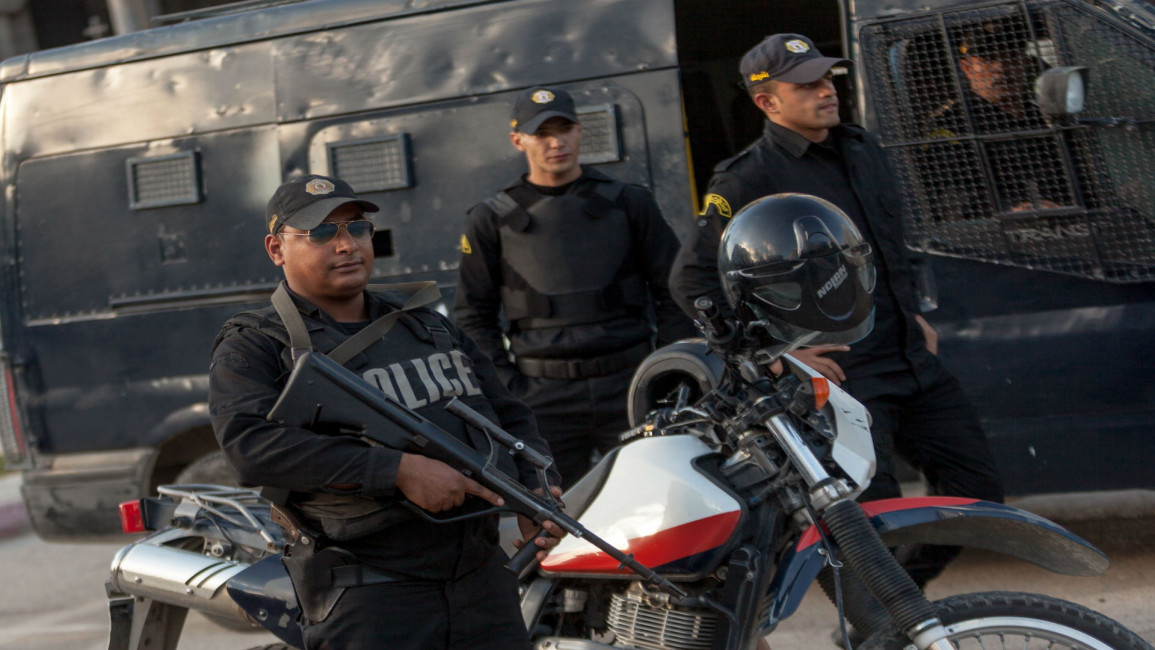Tunisia declares state of emergency after bus bombing
Tunisian President Beji Caid Essebsi announced a 30-day state of emergency after a bus carrying presidential guards was targeted on a central street in the country's capital on Tuesday evening.
In a televised speech shortly after the bombing, Essebsi announced that after consulting with the Prime Minister and head of parliament, he had decided to impose a 30-day state of emergency starting at 9 p.m. on Tuesday, local time.
"12 presidential guards were martyred and 16 were injured in the bus explosion," a source in the ministry of interior's media office told al-Araby al-Jadeed.
Sources in the Tunisian parliament said President Beji Caid Essebsi had contacted the head of parliament, Mohamed Ennaceur to discuss the possibility of declaring a state of emergency in the country.
Meanwhile, sources close to the president have told al-Araby al-Jadeed that the President has cancelled a two-day state visit to Switzerland scheduled to start on Wednesday.
On Monday, it was revealed that former Tunisian president Moncef Marzouki had been the target of an assassination plot.
Adnene Mancer, Marzouki's former campaign manager, said that the ministry of interior told the former president of the plot against him, which Mancer believes might be due to the reduction of Marzouki's security detail in recent weeks.
The former president, who had enjoyed the security of the presidential guards, had his detail changed to security personnel provided by the ministry of interior.
Tunisia has, in the past few years, witnessed a number of political assassinations and terrorist attacks that have targeted political figures and the country's tourism industry.



